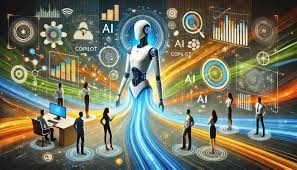5 Attributes of Agents
Salesforce predicts you will have deployed over 100 AI Agents by the end of the year. What are they? What do they do? Why do you need them? Let’s explore the 5 key attributes of AI Agents. What Is an AI Agent? An AI agent is an intelligent software system that uses artificial intelligence to autonomously pursue goals and complete tasks on behalf of users. Unlike traditional programs, AI agents exhibit reasoning, planning, memory, and decision-making abilities, allowing them to learn, adapt, and operate with minimal human intervention. These agents leverage generative AI and foundation models to process multimodal inputs—such as text, voice, video, and code—enabling them to:✔ Understand and analyze information✔ Make logical decisions✔ Learn from interactions✔ Collaborate with other agents✔ Automate complex workflows From customer service bots to autonomous research assistants, AI agents are transforming industries by handling tasks that once required human intelligence. Key Features of an AI Agent Modern AI agents go beyond simple automation—they possess advanced cognitive and interactive capabilities: Feature Description Reasoning Uses logic to analyze data, solve problems, and make decisions. Acting Executes tasks—whether digital (sending messages, updating databases) or physical (controlling robots). Observing Gathers real-time data via sensors, NLP, or computer vision to understand its environment. Planning Strategizes steps to achieve goals, anticipating obstacles and optimizing actions. Collaborating Works with humans or other AI agents to accomplish shared objectives. Self-Refining Continuously improves through machine learning and feedback. AI Agents vs. AI Assistants vs. Bots While all three automate tasks, they differ in autonomy, complexity, and learning ability: Aspect AI Agent AI Assistant Bot Purpose Autonomously performs complex tasks. Assists users with guided interactions. Follows pre-set rules for simple tasks. Autonomy High—makes independent decisions. Medium—requires user input. Low—limited to scripted responses. Learning Adapts and improves over time. May learn from interactions. Minimal or no learning. Interaction Proactive and goal-driven. Reactive (responds to user requests). Trigger-based (e.g., chatbots). Example: How Do AI Agents Work? AI agents operate through a structured framework: Types of AI Agents AI agents can be classified based on interaction style and collaboration level: 1. By Interaction 2. By Number of Agents Benefits of AI Agents ✅ 24/7 Automation – Handles repetitive tasks without fatigue.✅ Enhanced Decision-Making – Analyzes vast data for insights.✅ Scalability – Manages workflows across industries.✅ Continuous Learning – Improves performance over time. The Future of AI Agents As AI advances, agents will become more autonomous, intuitive, and integrated into daily workflows—from healthcare diagnostics to smart city management. Want to see AI agents in action? Explore 300+ real-world AI use cases from leading organizations. Like Related Posts Salesforce OEM AppExchange Expanding its reach beyond CRM, Salesforce.com has launched a new service called AppExchange OEM Edition, aimed at non-CRM service providers. Read more The Salesforce Story In Marc Benioff’s own words How did salesforce.com grow from a start up in a rented apartment into the world’s Read more Salesforce Jigsaw Salesforce.com, a prominent figure in cloud computing, has finalized a deal to acquire Jigsaw, a wiki-style business contact database, for Read more Service Cloud with AI-Driven Intelligence Salesforce Enhances Service Cloud with AI-Driven Intelligence Engine Data science and analytics are rapidly becoming standard features in enterprise applications, Read more







